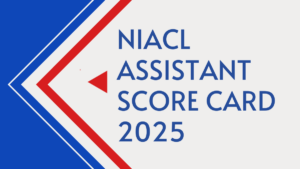The more you practice, the better you get. So, to let you practice and ace the score in the Reasoning Section of all the Banking Examinations, Bankersdda is proving you with Reasoning Questions and Answers on various topics. Try to attempt these question yourself to score in upcoming IBPS PO Prelims, IBPS Clerk, IBPS RRB, other banking and insurance exams.
Directions (1-5): Study the following information carefully and answer the given questions.
A, B, C, D, E, F, G and H are sitting around a square table in such a way that four of them sit at four corners of the square while four sit in the middle of each of the four sides. The one who sits at the four corners face the center of the table while those who sit in the middle of the sides face outside. Each of them belongs to different branch of engineering viz. Electrical, Electronics, Computer, Mechanical, Chemical, Textile, Civil and Agriculture engineering but not necessarily in the same order.
C sits third to the left of the one who belongs Agriculture engineering. The one who belongs to Agriculture engineering faces outside. Two persons sit between C and H. The one who belongs to Electrical engineering sits on the immediate right of H. The one who belongs to Chemical engineering sits second to the right of G. G is neither an immediate neighbour of H nor of C. G does not belong to Agriculture engineering. Only one person sits between A and the one who belongs Chemical engineering. D sits on the immediate left of the one who belongs Textile engineering. G does not belong to Textile engineering. E belongs to Civil engineering. E is not an immediate neighbour of A. The one who belongs to Electronics engineering is an immediate neighbour of E. The one who belongs to Mechanical engineering is an immediate neighbour of F.
C sits third to the left of the one who belongs Agriculture engineering. The one who belongs to Agriculture engineering faces outside. Two persons sit between C and H. The one who belongs to Electrical engineering sits on the immediate right of H. The one who belongs to Chemical engineering sits second to the right of G. G is neither an immediate neighbour of H nor of C. G does not belong to Agriculture engineering. Only one person sits between A and the one who belongs Chemical engineering. D sits on the immediate left of the one who belongs Textile engineering. G does not belong to Textile engineering. E belongs to Civil engineering. E is not an immediate neighbour of A. The one who belongs to Electronics engineering is an immediate neighbour of E. The one who belongs to Mechanical engineering is an immediate neighbour of F.
Q1. What is the position of the one who belongs to Textile engineering with respect to G?
(a) Second to the left
(b) Third to the right
(c) Fourth to the left
(d) Second to the right
(e) Third to the left
Q2. Who among the following represent the immediate neighbours of the one who belongs to Chemical engineering?
(a) B, F
(b) C, E
(c) B, E
(d) D, F
(e) F, H
Q3. Who among the following sits exactly between H and B?
(a) C
(b) The one who belongs to Electronics engineering
(c) The one who belongs to Computer engineering
(d) G
(e) A
Q4. Which of the following is true regarding B?
(a) B is one of the immediate neighbours of D.
(b) The one who belongs to Agriculture engineering is an immediate neighbour of B.
(c) B sits second to the left of H.
(d) B belongs to Civil engineering.
(e) B is an immediate neighbour of the one who belongs to Electrical engineering.
Q5. Who amongst the following sits diagonally opposite the one who belongs Electrical engineering?
(a) The one who belongs to Electronics engineering
(b) D
(c) A
(d) The one who belongs to Computer engineering
(e) The one who belongs to Mechanical engineering
Directions (6-10): Each of the following questions below consists of a question and two statements numbered I and II given below it. You have to decide whether the data provided in the statements are sufficient to answer the question. Read both the statements and give answer.
(a) if the data in statement I alone are sufficient to answer the question, while the data in statement II alone are not sufficient in answer the question.
(b) if the data in statement II alone are sufficient to answer the question, while the data in statement I alone are not sufficient to answer the question.
(c) if the data in either in statement I alone or in statement II alone are sufficient to answer the question.
(d) if the data in both the statements I and II together are not sufficient to answer the question.
(e) if the data in both the statements I and II are together necessary to answer the question.
Q6. In the code language, what is the code for ‘bad’?
I. In the code language, ‘she is bad’ is written as ‘tv sx ca’.
II. In the same code language, ‘bad boy’ is written as ‘sx ka’.
Q7. How many children are there in the group?
I. Surmai has scored more marks than 12 children in the group.
II. Rinki has scored less than Surmai.
Q8. Who among L, N, F, G and Q was the first to reach the Railway Station?
I. F reaches before L and G but not before Q who was not the first to reach.
II. N reached before F and G and L reached after F.
Q9. How is Manoj related to Sulabh
I. Manoj is the only grandson of Sulabh’s father-in-law
II. Sulabh has no siblings.
Q10. What is the value of 27#9*6?
I. P#Q means divide P by Q.
II. A*B means multiply A by B.
Directions (11-15): Study the following information carefully to answer the questions given below:
In a certain code language,
‘for work and draw’ is written as ‘ I4X M1E L23L L6S’,
‘treaty based such weapon’ is written as ‘V23M F19I Z2E I20Z’ and
‘must involve the nuclear’ is written as ‘ F14S S20F M9F F13U ’
Q11.What will be the code for ‘describes’?
(a) V4B
(b) V14T
(c) V5T
(d) V4T
(e) None of these
Q12.What will be the code for ‘coalition’?
(a) L3L
(b) L13O
(c) M3O
(d) L3O
(e) None of these
Q13.What will be the code for ‘achieve’?
(a) X1F
(b) X11F
(c) Y1F
(d) X1H
(e) None of these
Q14.What will be the code for ‘prohibition’?
(a) I17O
(b) I16O
(c) I16K
(d) J16O
(e) None of these
Q15.What will be the code for ‘nations’?
(a) Z4T
(b) Z1T
(c) Z14U
(d) X14T
You may also like to Read:





 The Hindu Review October 2022: Download ...
The Hindu Review October 2022: Download ...
 NIACL Assistant Cut off 2025 Out, Check ...
NIACL Assistant Cut off 2025 Out, Check ...
 NIACL Assistant Score Card 2025 Out, Che...
NIACL Assistant Score Card 2025 Out, Che...




